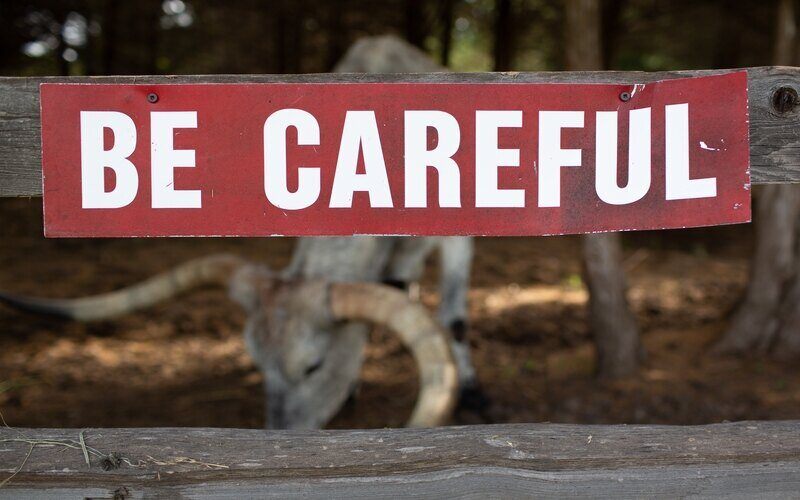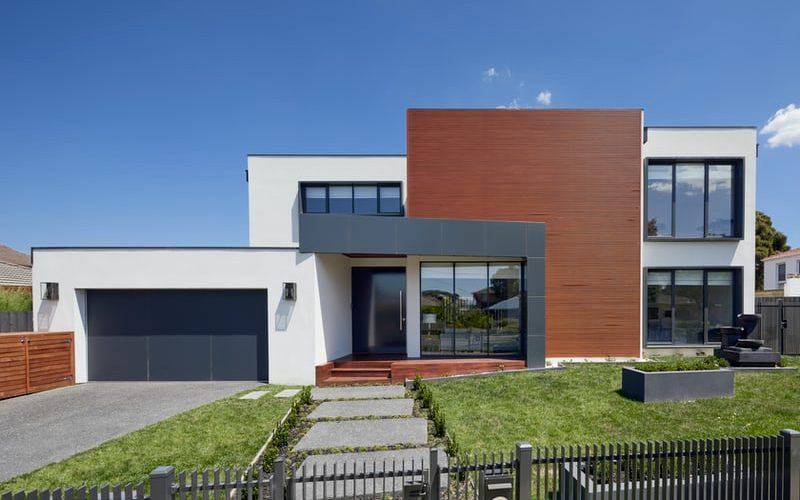If being stuck in iso with your housemates has highlighted just how annoying they are to live with and you want to move out before you kill them, or you just want to move to a better location, this might seem like an ideal time to do so.
But given the uncertain economy, it’s important to consider a range of factors other than the price of rent when deciding if now is the time to look for a new place to live.
On this page:
How far could rents fall?
The mass exodus of tenants from the capital cities as a result of coronavirus lockdown restrictions together with the shutdown of immigration into the country could lead to significant rent falls, predicts AMP Capital chief economist Dr Shane Oliver.
“Our best guess is a fall of around 5%, but it will vary dramatically from area to area,” he told Savings.com.au.
“It really depends on how long it takes the economy to recover.”
According to the latest figures from SQM Research, national asking rents fell over the past month, down 1.3% for houses and remained stable for units.
National asking rents have now recorded a 12-month decrease of -3.1% for houses and -3.2% for units.
Other data sources also show that rents have dropped over the past month. Domain’s measure of asking rents has fallen in most capital cities, but actual rents have likely fallen by even more, according to Domain economist Trent Wiltshire.
“The asking rents measure shown in the table understates the decline in actual rents as many landlords are reducing their initial asking price or offering rent-free periods or other incentives to secure a tenant,” he said.
Percentage change in median asking rents, March quarter to June quarter-to-date:
|
|
Adelaide |
Brisbane |
Canberra |
Hobart |
Melbourne |
Perth |
Sydney |
|
Houses |
0.0% |
-2.4% |
0.0% |
-4.3% |
-1.1% |
-1.3% |
0.0% |
|
Units |
0.0% |
-1.3% |
0.0% |
-3.6% |
0.0% |
0.0% |
-1.9% |
Source: Domain
CoreLogic figures show that asking rents fell in seven of the eight capital cities in April, with the biggest falls in Hobart (-1.1%), Sydney (-0.7%), Canberra (-0.7%) and Melbourne (-0.5%).
Meanwhile, vacancy rates surged from 2.0% in March to 2.6% in April, “one of the largest one month rises ever recorded on our vacancy rate series”, SQM Research managing director Louis Christopher said.
Mr Christopher said continued high levels of rental vacancies will only push rents further downwards.
“The question now begs is how long will we see such high rental vacancies? If it is sustained throughout the course of the year, then we can expect far deeper falls in rents which will be good news for tenants but a disaster for landlords,” he said.
CBD vacancy rates:
|
CBD |
April ’19 Vacancies |
March ’20 Vacancies |
April ’20 Vacancies |
|
Sydney |
6.5% |
5.7% |
13.8% |
|
Melbourne |
2.3% |
5.0% |
7.6% |
|
Brisbane |
5.3% |
5.7% |
11.3% |
|
Perth |
5.4% |
4.7% |
5.8% |
|
Adelaide |
2.4% |
3.2% |
6.6% |
|
Canberra |
4.8% |
2.2% |
4.6% |
|
Darwin |
6.3% |
4.7% |
5.3% |
|
Hobart |
1.3% |
1.3% |
2.5% |
Source: SQM Research
If you’re on the lookout for a cheaper rental, Mr Wiltshire said rents are likely to drop the most in CBDs and holiday hotspots.
“Rents are likely to fall most significantly in inner-city suburbs and holiday regions as these areas have a high concentration of short-term rentals,” Mr Wiltshire said.
“Inner-city suburbs are also where students and young people working in industries most affected by COVID-19, notably accommodation and food services, typically live.”
Preliminary listings data from CoreLogic shows that the number of properties for rent in the inner-city regions of Melbourne and Sydney increased by 36.2% and 34.1% respectively between the week ending 22nd of March and the week ending 26th of April - just after the borders closed to non-residents and non-citizens.
Holiday rentals flood long-term market
As coronavirus lockdown restrictions escalated, Airbnb bookings nosedived. With tourism plummeting, short-term rental cancellations mean landlords have had to rethink their investment strategy and list their holiday rental on the long-term rental market.
Mr Oliver said the oversupply could be an opportunity for tenants to lock in low rent.
“Airbnb properties flooding the market will just put more downwards pressure on rents. Just make sure you go in with your eyes open and lock in lower rents for as long as possible,” he told Savings.com.au.
It’s fairly easy to spot the holiday rentals: they’re usually fully furnished properties on short-term leases (3-6 months usually) in capital cities or holiday hotspots like Byron Bay, Surfers Paradise and Bondi.
Realestate.com.au on 28 March reported there were 54% more furnished properties listed on their site nationally in that week compared to the week before - and a 152% increase on the week before that.
When coronavirus lockdown restrictions ease and travel borders reopen, it’s inevitable that many of these holiday rentals will eventually be put back up on the short-term letting market which Head of Propertyology Simon Pressley says could be a headache for tenants.
"I don’t know that too many tenants are keen to relocate right now, let alone take the risk of having to move again when the landlord wants to place the property back with Airbnb in six or so months' time," he told Savings.com.au.
But whether or not the landlord decides to re-list the property on the short-term letting market depends on a range of factors, according to PRD chief economist Dr Diaswati (Asti) Mardiasmo.
“If it’s a heavy tourist location then the prediction of an economic bounce-back in this sector is slower, so the chances of that Airbnb going back to being an Airbnb again is lower,” Dr Mardiasmo told Savings.com.au.
“I would say tread carefully, consider the location of the Airbnb, who are the owners, and why the owners are doing Airbnb as there are motivators to whether or not the property is listed in the normal rental market or Airbnb market.”
Ray White CEO of Property Management Emily Sims said some landlords might be more willing to consider a long-term investment strategy.
“As a renter, you will be able to sense this in your negotiation,” she told Savings.com.au.
“The longer the landlord is prepared to lease the property to you, the more likely they are to be accepting of a long-term strategy.
“Landlords wishing to secure only six-month tenancy agreements may indicate that they will look to the short-stay market again in the future.”
Another thing tenants should be wary of is the possibility of moving into a building filled with other short-term holiday lets, property investment adviser Niro Thambipillay from investmentrise.com.au warns.
“If renters like the apartments, then they should at least consider these as an option. Landlords might be more flexible on the rental amount as they are receiving zero income right now.
“However, the drawback is that even if the renter’s apartment is not put back onto Airbnb, other units around them could be and do they want to live in such an environment?” Mr Thambipillay said.
So should you find a new rental?
There are pros and cons to moving at the moment but it ultimately depends on why you want to move in the first place.
“If you chose to rent that place just because it was what you could afford back then, and your requirements are easily copied elsewhere, then it is not a bad idea to look around and see what else is available,” Dr Mardiasmo said.
“However, if you chose your current place for something specific - for example the layout of the house, within your dream school catchment or extremely close to public transport, or you really connect with the area or community, then the question becomes whether or not you can replicate these needs elsewhere and for a better price.
“Also remember that with moving rentals you need a good reference from the current property manager and that you are then going to be dealing with a new property manager and landlord. They may be better or worse than your current one – it’s hard to tell.” Dr Mardiasmo added.
Ms Sims said that while choosing to move right now could be a gamble, she knows some people who it has paid off for.
“Many are vacating to upsize to a house which is now more affordable or relocating from say a $2000 per week property to a $1750 as it is a comparable property but significantly cheaper,” she said.
For those who are considering finding a cheaper rental, Ms Sims has some advice.
“As a tenant, you should consider the actual cost of moving in terms of cleaning and removalists costs versus the lesser rent you are accepting. Is there a saving?
“Further, how long will the reduced rent last? Have you signed up for a six-month tenancy agreement or twelve? Is there a rent increase negotiated into the twelve-month agreement? These are all factors as to whether relocating now will save you money in the long run,” she said.
Should you negotiate lower rent if you can see that rents around you are dropping?
“Some tenants are absolutely asking this question and it is reasonable to do so,” Ms Sims said.
She says tenants with the strongest leverage to ask for a rent reduction are the ones who have a fixed-term tenancy agreement expiring soon, those who are on periodic leases, or those who are completely prepared to move at whatever cost to improve their lifestyle or save money.
Mr Thambipillay said tenants should prepare themselves for landlords being unwilling to budge on price.
“Be prepared for some landlords not to agree, as some are in denial about the current state of the market or are in financial distress and don’t want to lower the rent,” he said.
“If that happens, you have to decide if you’re going to stay where you are (knowing that your landlord is not willing to negotiate) or will you move?”
Should renters negotiate a longer lease for a new rental?
If you are considering moving to a new rental property, it could be worth negotiating a longer lease, particularly if you’re interested in a holiday rental.
Mr Thambipillay said asking for a longer lease benefits the tenant and the landlord.
“It provides the renter with longer-term security and it provides the landlord with more financial certainty,” he said.
“It might even allow renters to negotiate further on the actual rental amount (in exchange for the longer lease).”
But Dr Mardiasmo said tenants should remember that landlords have obligations to serve.
“If you are able to find a more affordable rental and it suits all your needs, then it does make sense to negotiate for a longer lease.
“However, remember that your landlord has obligations to serve as well - mortgage, body corporate, council rates, fees, cost repairs, etc. If the new rental amount you are proposing is lower than previous, it is possible that the landlord will not agree to a longer lease,” Dr Mardiasmo said.
Savings.com.au’s two cents
Looking for a new rental property in a renters market makes sense because tenants have more power in their hands to find something that’s potentially better and cheaper.
If you’re in a financially stable position right now, this could be a very tempting opportunity to take advantage of the falling market.
But before you start browsing the listings on realestate.com.au and Domain, it’s important to know why you want to move in the first place.
You should also weigh up the costs that come with moving, such as cleaning and removalists fees versus the lesser cost of rent and decide if moving is worth it.
Don’t forget that there’s always the possibility that your rent could increase after your lease is up.

Ready, Set, Buy!
Learn everything you need to know about buying property – from choosing the right property and home loan, to the purchasing process, tips to save money and more!
With bonus Q&A sheet and Crossword!



 William Jolly
William Jolly
 Rachel Horan
Rachel Horan













